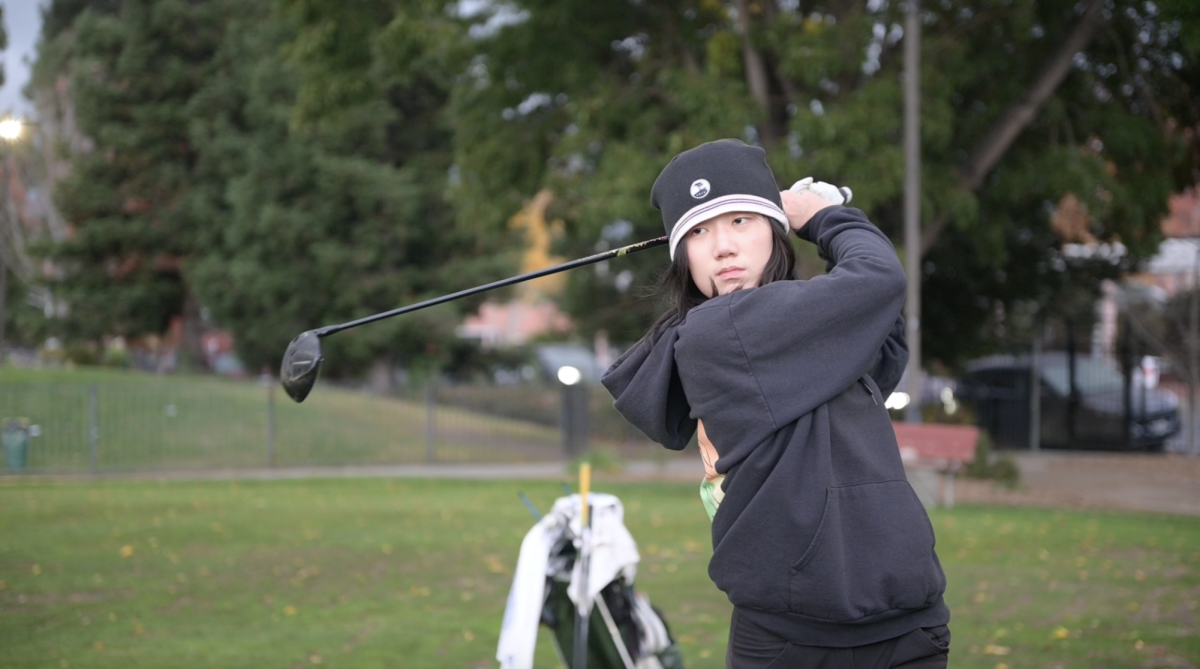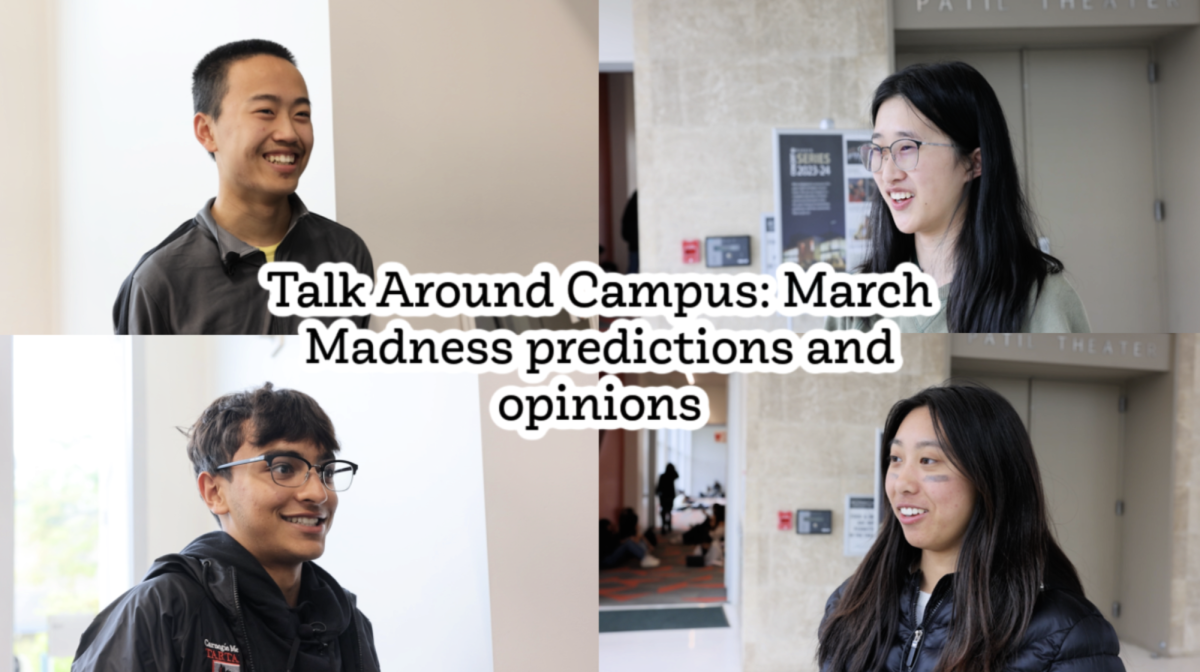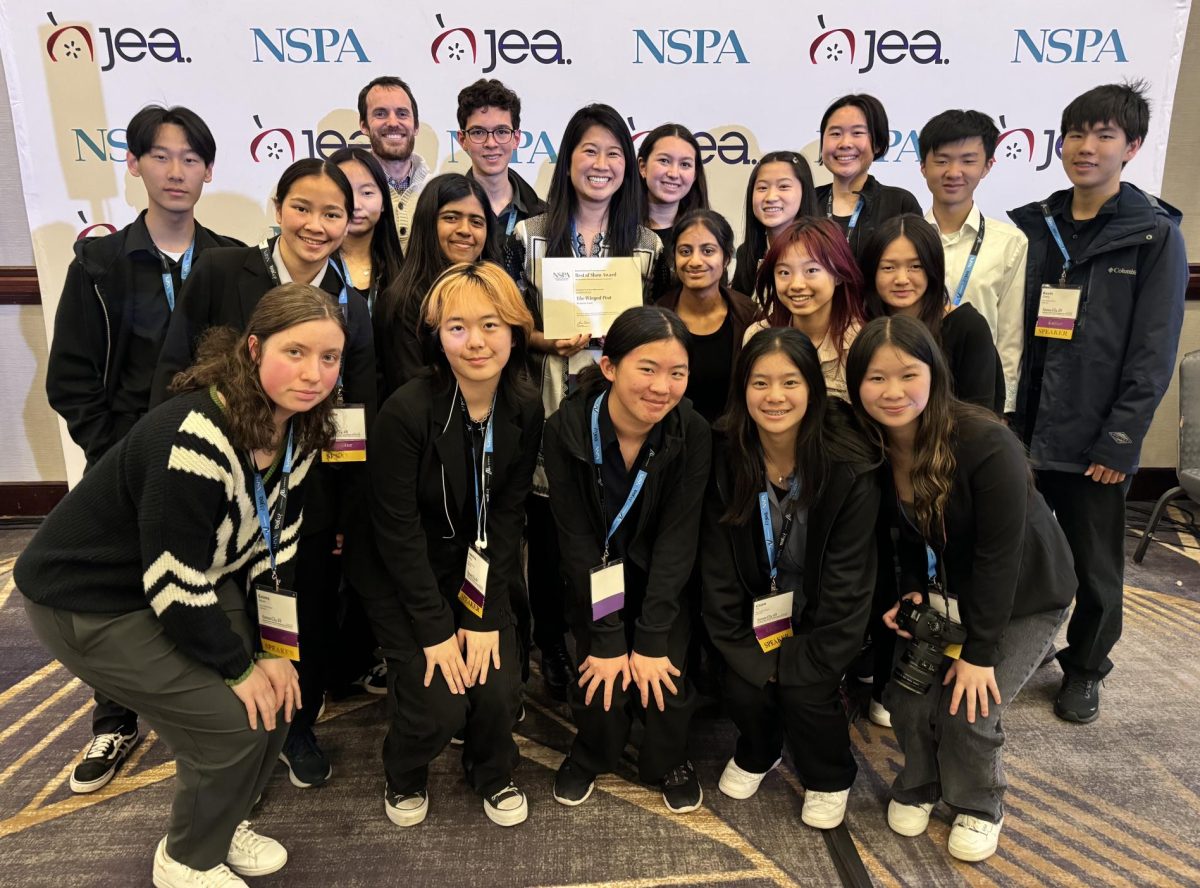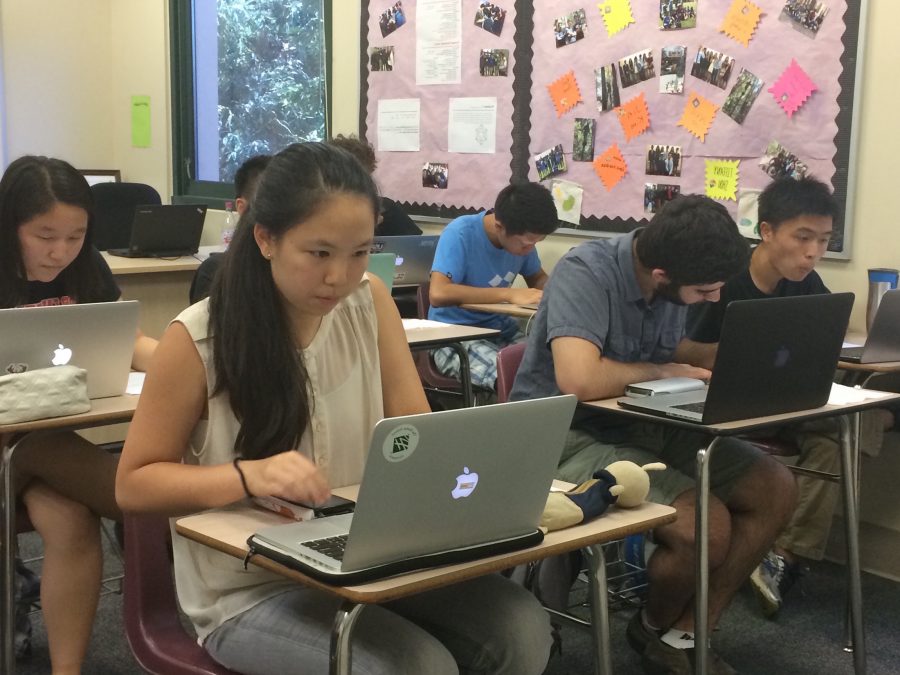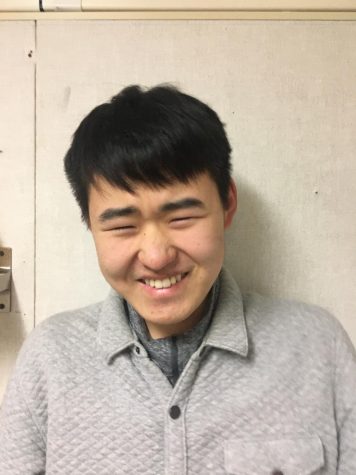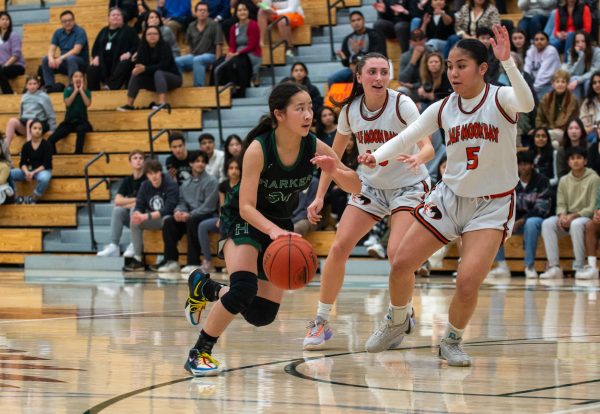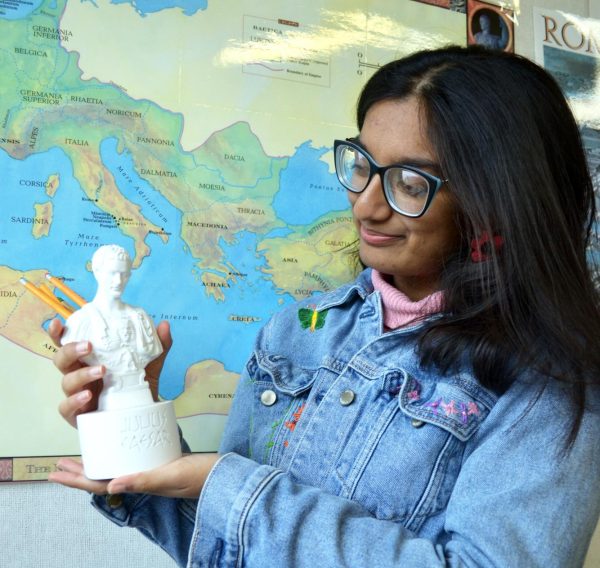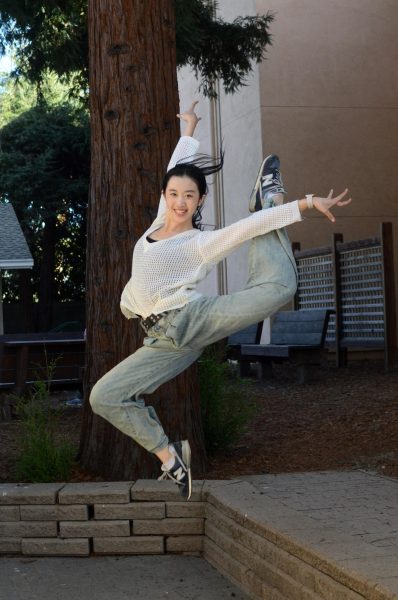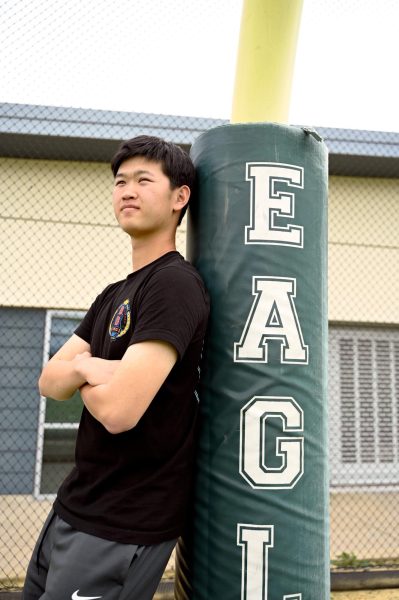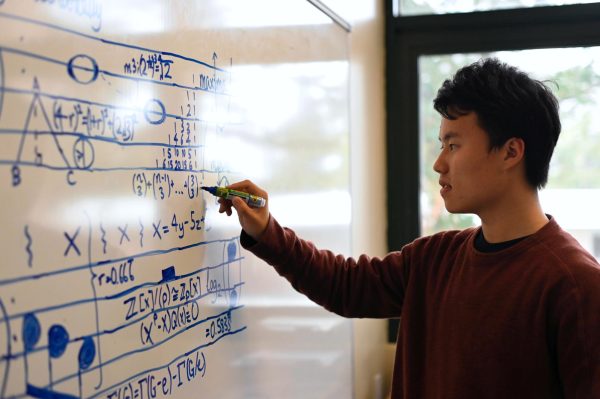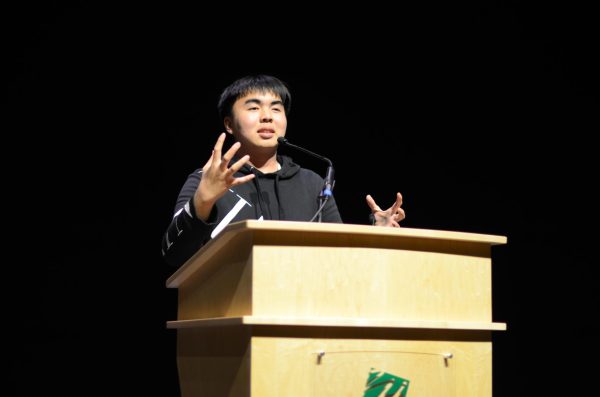Upcoming math competitions in 2018
Joanna Lin (12) works on a problem during a practice round for last year’s online math competition Math Madness on Sept. 27. Competitors worked on math problems online in 20 minute sessions.
December 7, 2017
As 2017 winds to a close, many math and science competitions approach, the two closest ones being the TEAMS competition and the AMC 10/12.
The AMC 10 and the AMC 12 are both 25-question tests that last for 75 minutes, designed to test students’ skills in math. The AMC 10 will be open to sophomores and below and will cover up to tenth grade math, while the AMC 12 will be open to seniors and below and will cover all of high school math.
Both AMC exams will take place on Feb. 6, 2018. There will be a special schedule that day, so any competing students will not miss classes. Students can sign up via a Google form, or scan the QR code printed on fliers posted in Dobbins hall. Sign ups for the AMC B, an alternate version of the AMC test with similar difficulty levels, must be done through Dr. Aiyer, and are only open to active members of the Math Club.
TEAMS is an annual competition designed to challenge students to work collaboratively and apply their knowledge of math and science to real-life engineering problems. Unlike the AMCs, TEAMS is a group competition, with team sizes of four to eight students.
The TEAMS contest lasts for an entire day. Teams are judged based on essays they submit beforehand, a 90-minute, 80-question multiple choice test and a 75-minute design challenge related to the yearly theme. The 2018 TEAMS theme is “Engineering a Greener World.”
Many students have begun preparing for the competitions, though they are met with challenges.
“Most of contest preparation is different problems, and I think this is why preparation is so difficult, because it requires a lot of time.” Jeffrey Kwan (10), who is a lecturer for math club, said. “Also, the other thing is that it’s kind of hard to stay motivated when you’re not solving problems. Sometimes you get in a slump where you can’t solve anything and you’re like ‘Oh, I’ve spent two hours, I can’t do anything.’ That’s the hardest part.”
However, the challenges lie not only in the competition’s preparation, but also in the actual competition itself.
“The hardest part of doing a math contest is either avoiding silly mistakes or just managing your time,” Rohan Cherukuri (10), who has been taking part in the AMC competitions since sixth grade, said. “On one hand, you’re trying to go through the problems quickly, but on the other hand, you want to get all the problems right. So you have to find that balance.
Despite the challenges, these competitions can be very rewarding.
“One [benefit of competing] is problem solving, being able to apply their knowledge to new situations,” Dr. Aiyer said. “These are typically not topics that are taught during a regular classroom setting, so for them to be able to gain that knowledge through trial and error or their own interest in finding out how to do it, I think that’s a good thing.”
Aside from challenging problem solving skills, these competitions also strengthen character.
“Competition math just makes you a better person overall,” Michael Wang (11), who has attended the Princeton University Math Competition (PuMAC) twice and participates yearly in the AMC/AIME said.































![Setter Emma Lee (9) sets the ball to the middle during the match against Pinewood on Sept. 12. “[I’m looking forward to] getting more skilled, learning more about my position and also becoming better friends with all of my teammates, Emma said.](https://harkeraquila.com/wp-content/uploads/2023/09/DSC_4917-2-1200x795.jpg)








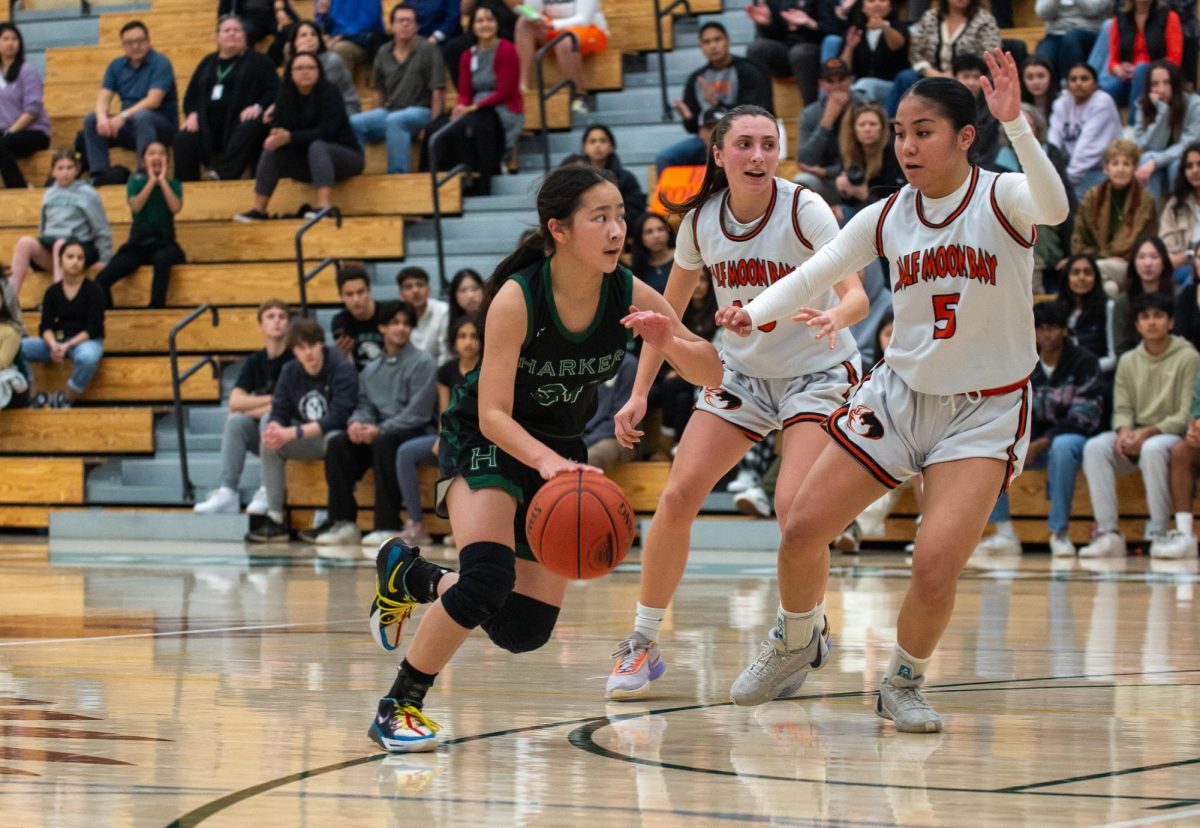























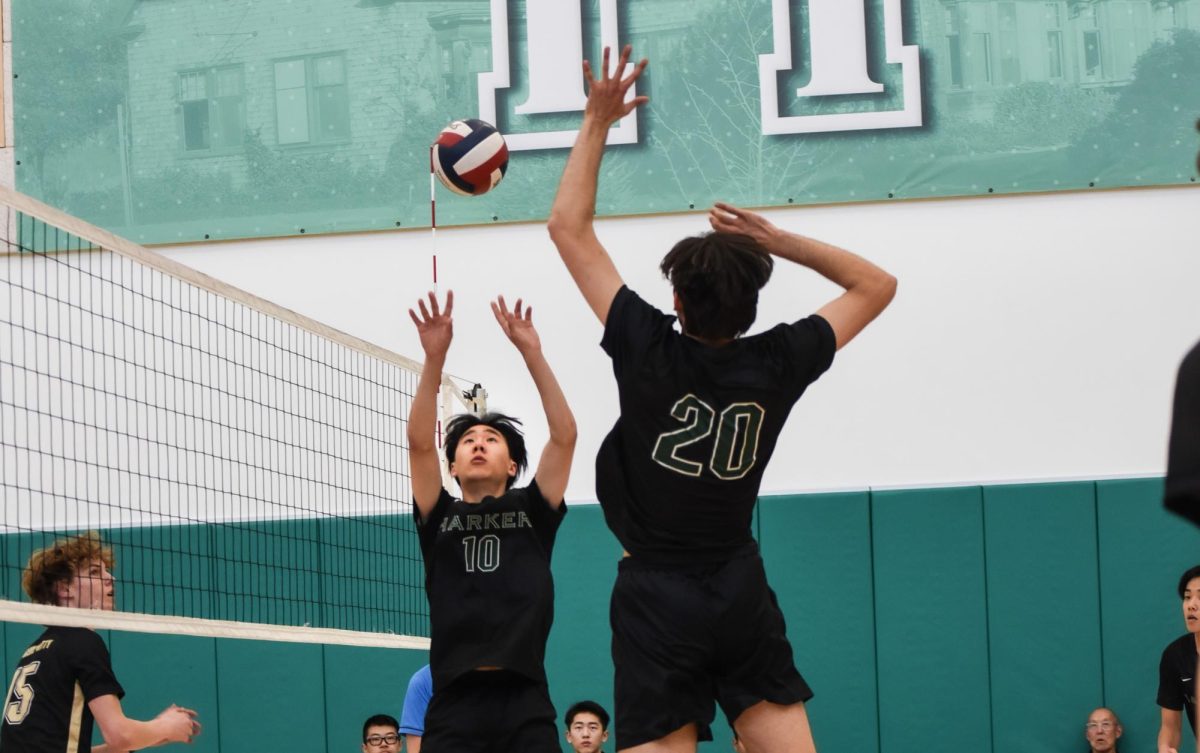
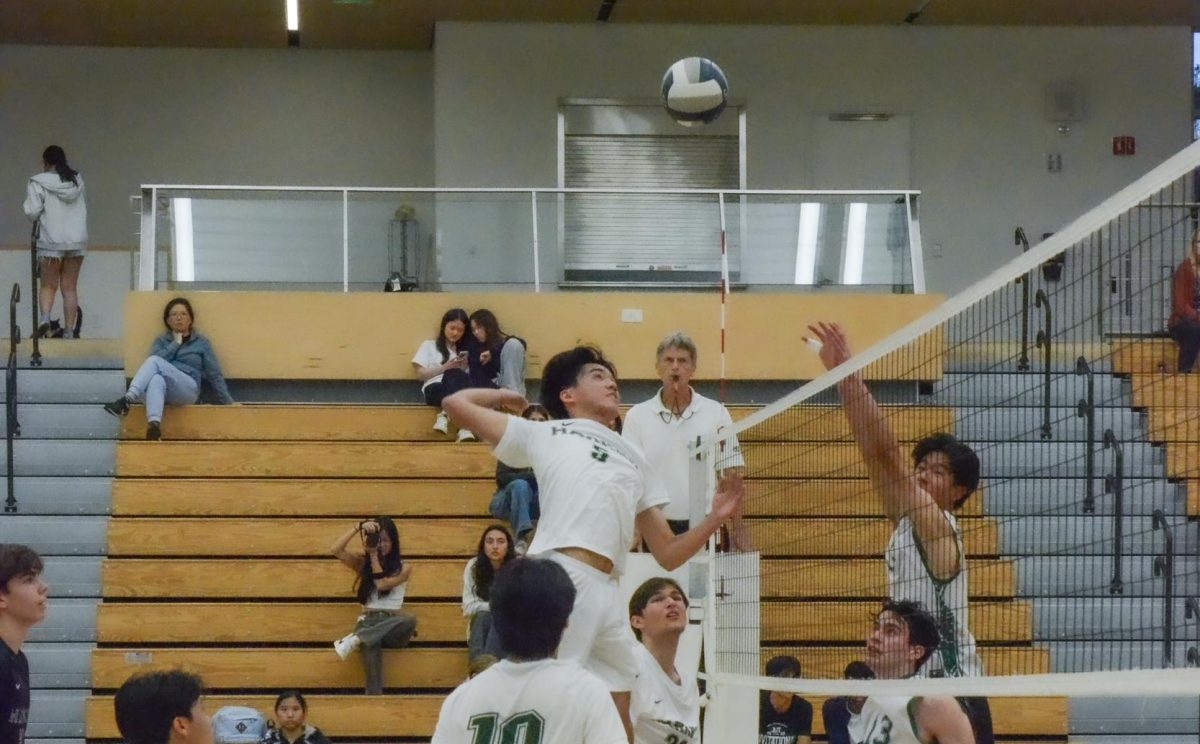
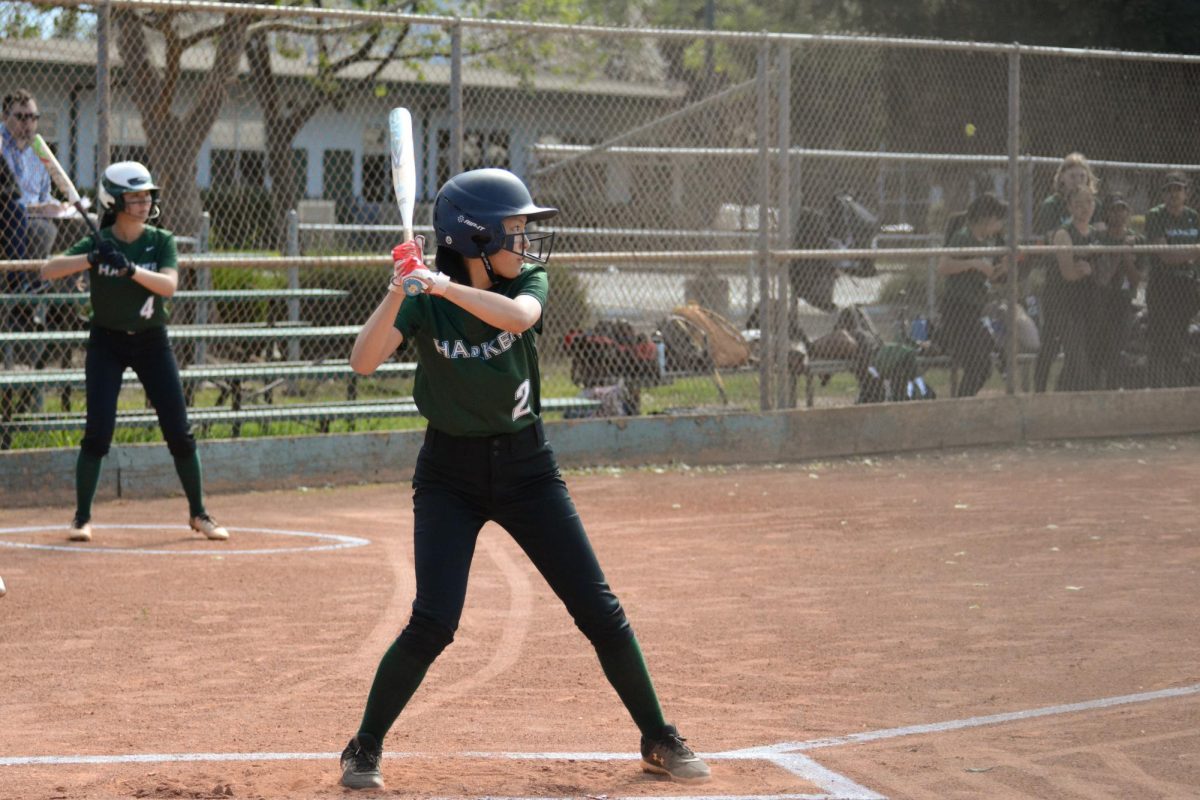
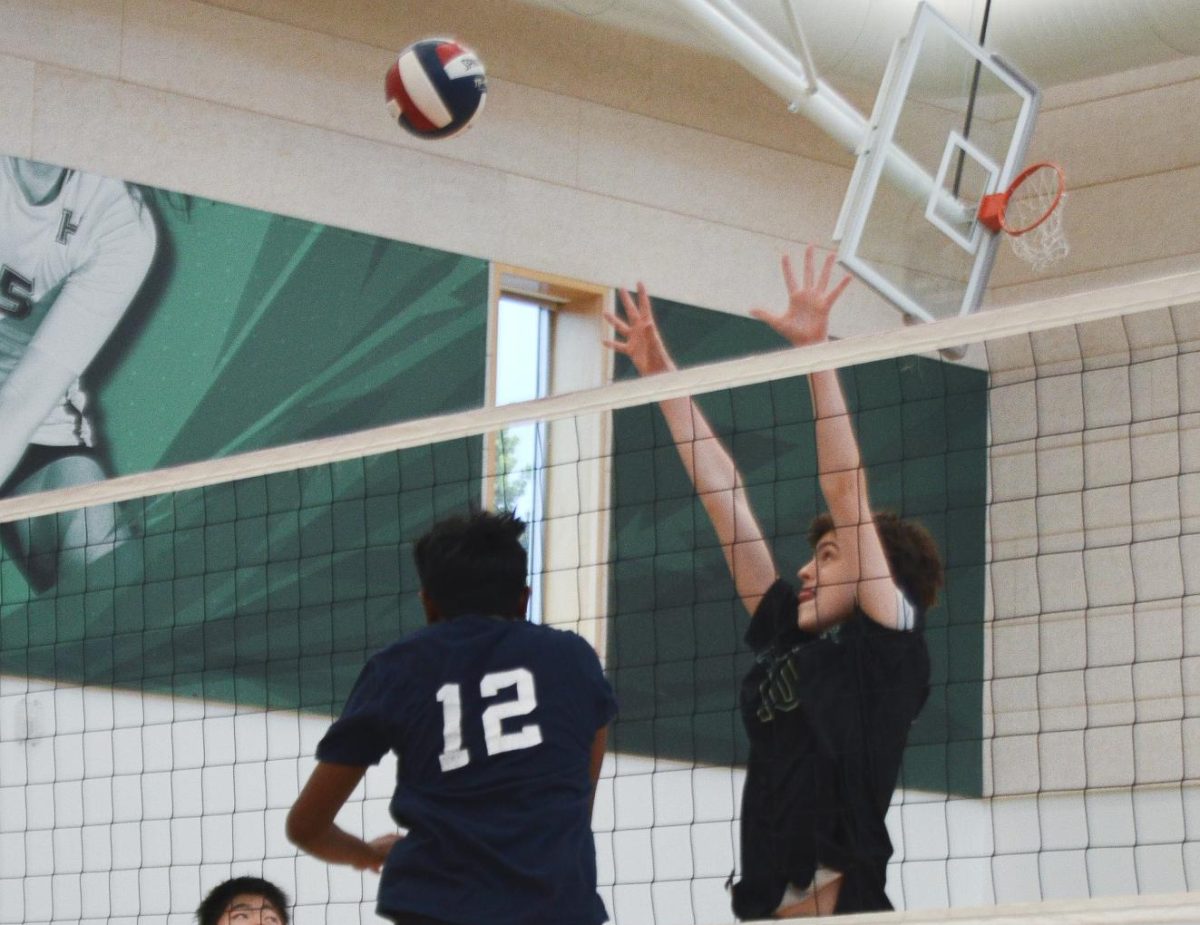
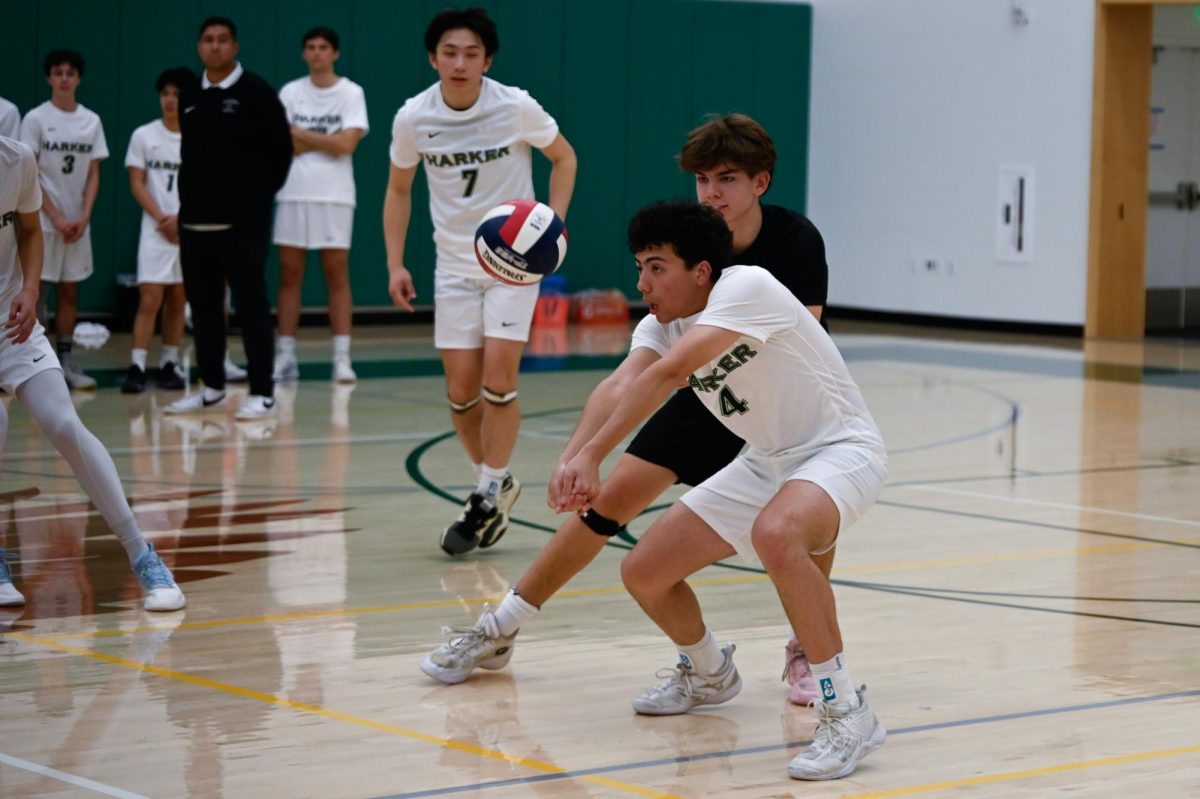




























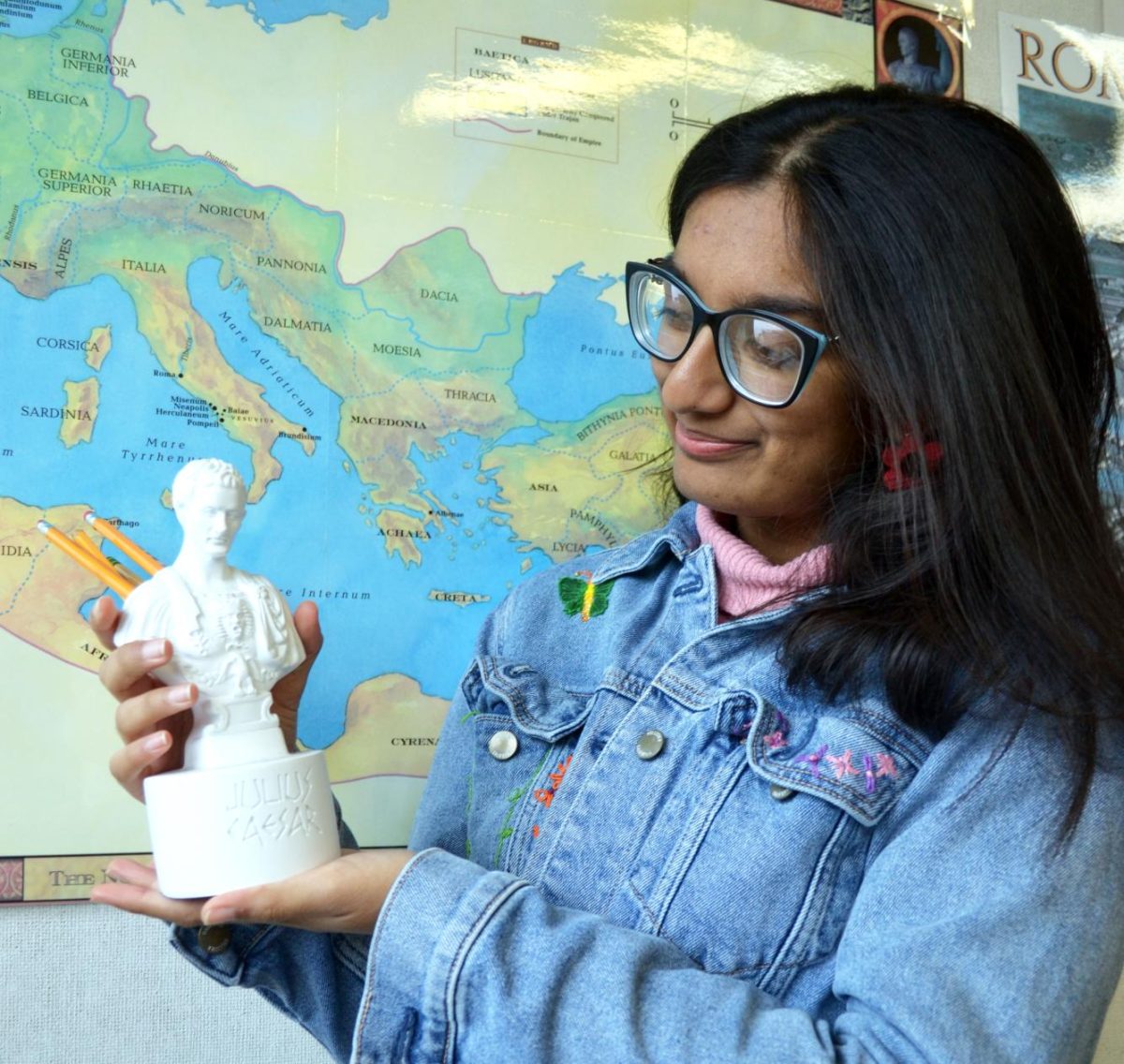
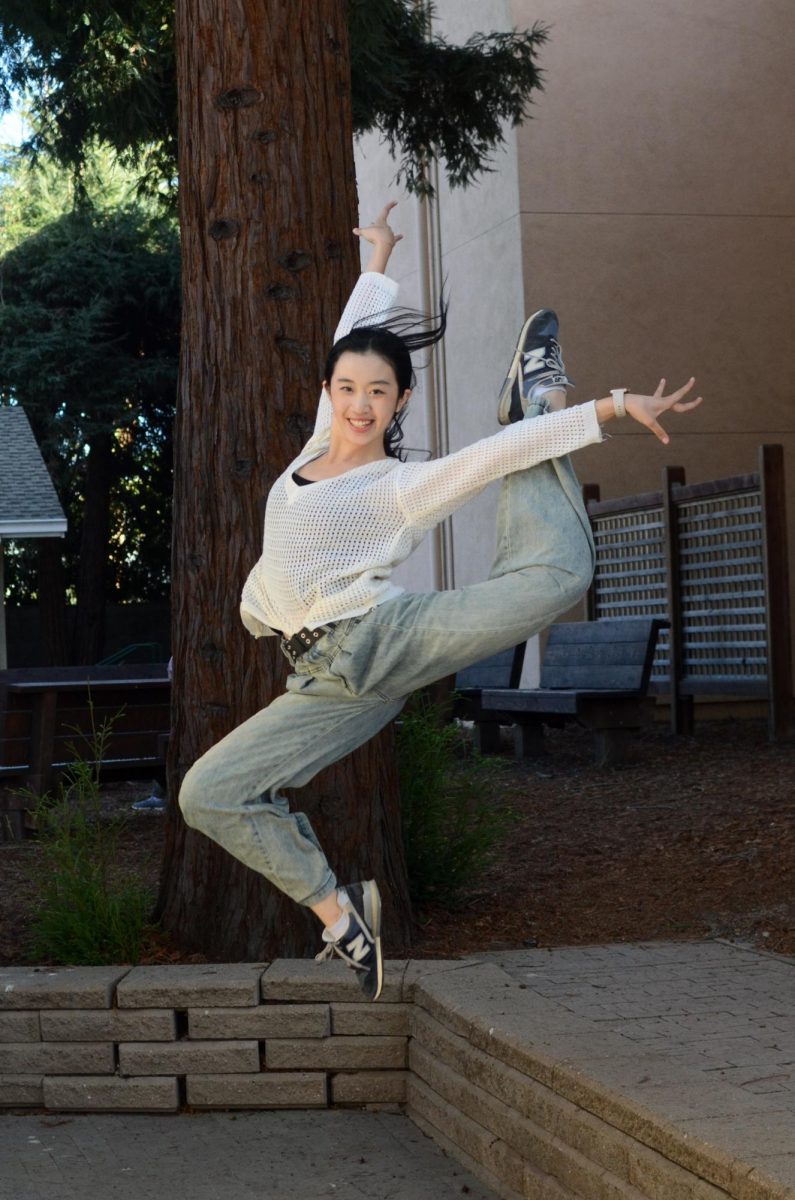
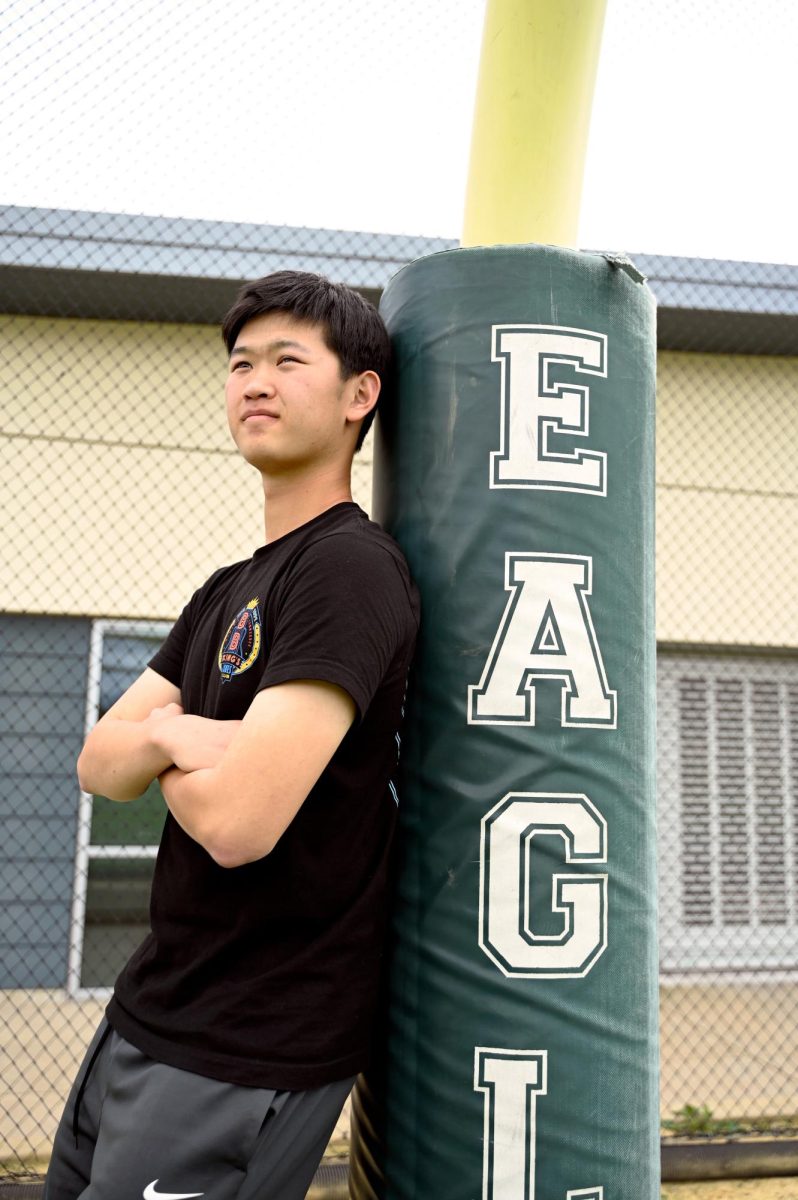
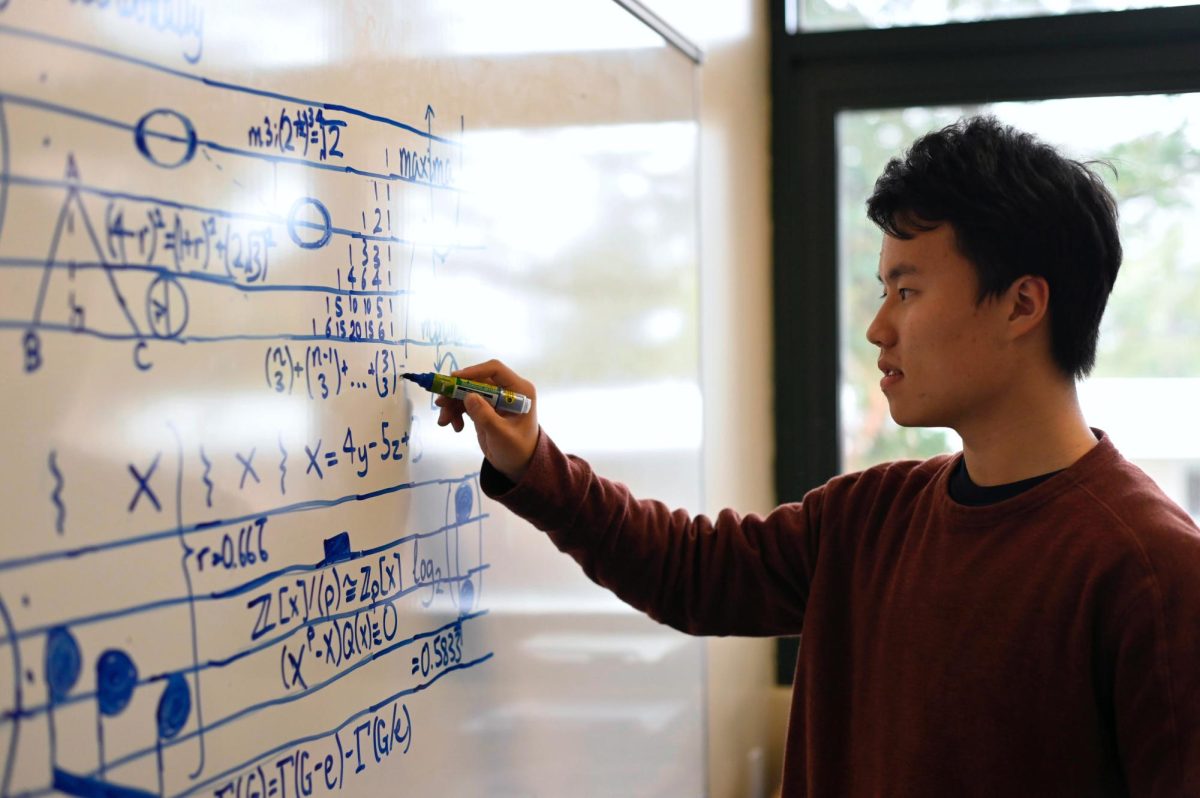









![“[Building nerf blasters] became this outlet of creativity for me that hasnt been matched by anything else. The process [of] making a build complete to your desire is such a painstakingly difficult process, but Ive had to learn from [the skills needed from] soldering to proper painting. Theres so many different options for everything, if you think about it, it exists. The best part is [that] if it doesnt exist, you can build it yourself, Ishaan Parate said.](https://harkeraquila.com/wp-content/uploads/2022/08/DSC_8149-900x604.jpg)


![“Animation just clicked in a way. I had been interested in art, but that felt different. [Animation] felt like it had something behind it, whereas previous things felt surface level. I wasnt making that crazy of things, but just the process of doing it was much more enjoyable, Carter Chadwick (22) said.](https://harkeraquila.com/wp-content/uploads/2022/08/Screen-Shot-2022-08-16-at-9.44.08-AM-900x598.png)


![“When I came into high school, I was ready to be a follower. But DECA was a game changer for me. It helped me overcome my fear of public speaking, and its played such a major role in who Ive become today. To be able to successfully lead a chapter of 150 students, an officer team and be one of the upperclassmen I once really admired is something Im [really] proud of,” Anvitha Tummala (21) said.](https://harkeraquila.com/wp-content/uploads/2021/07/Screen-Shot-2021-07-25-at-9.50.05-AM-900x594.png)



![“[Volleyball has] taught me how to fall correctly, and another thing it taught is that you don’t have to be the best at something to be good at it. If you just hit the ball in a smart way, then it still scores points and you’re good at it. You could be a background player and still make a much bigger impact on the team than you would think,” Anya Gert (’20) said.](https://harkeraquila.com/wp-content/uploads/2020/06/AnnaGert_JinTuan_HoHPhotoEdited-600x900.jpeg)

![“Im not nearly there yet, but [my confidence has] definitely been getting better since I was pretty shy and timid coming into Harker my freshman year. I know that theres a lot of people that are really confident in what they do, and I really admire them. Everyones so driven and that has really pushed me to kind of try to find my own place in high school and be more confident,” Alyssa Huang (’20) said.](https://harkeraquila.com/wp-content/uploads/2020/06/AlyssaHuang_EmilyChen_HoHPhoto-900x749.jpeg)













![“My slogan is ‘slow feet, don’t eat, and I’m hungry.’ You need to run fast to get where you are–you arent going to get those championships if you arent fast,” Angel Cervantes (12) said. “I want to do well in school on my tests and in track and win championships for my team. I live by that, [and] I can do that anywhere: in the classroom or on the field.”](https://harkeraquila.com/wp-content/uploads/2018/06/DSC5146-900x601.jpg)

![“I think getting up in the morning and having a sense of purpose [is exciting]. I think without a certain amount of drive, life is kind of obsolete and mundane, and I think having that every single day is what makes each day unique and kind of makes life exciting,” Neymika Jain (12) said.](https://harkeraquila.com/wp-content/uploads/2017/06/Screen-Shot-2017-06-03-at-4.54.16-PM.png)






